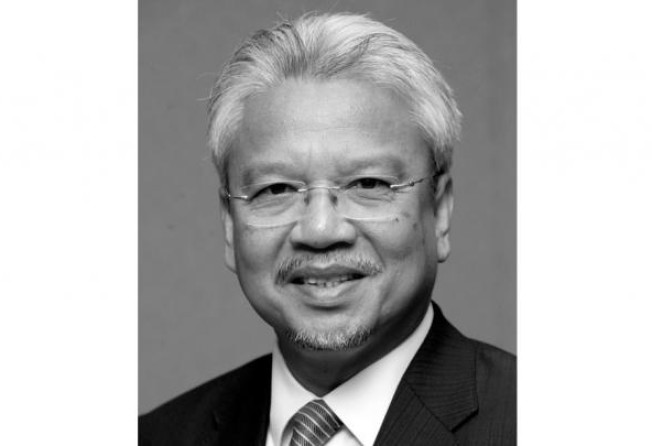Lessons from dad helps minister get the job done
Ahmad Husni's school experience is invaluable in his mission to strengthen China-Malaysia ties

When Malaysian Second Minister of Finance Ahmad Husni Hanadzlah was growing up, his father sent him to a school where he had to walk six kilometres every day instead of the one next door.
The reason, his father said, was to teach him discipline and expose him to people from different backgrounds.
Now at the age of 60, the dapper Husni says he still benefits from the lessons his father taught him as he tries to strengthen Malaysia's financial and diplomatic ties with China.
"What we hope is to become the gateway for China in Asean [the Association of Southeast Asian Nations]," said Husni, who continues to look up to his 93-year-old father, who worked in the government's religious affairs division and was the imam at the community mosque.
Husni recalled that his father would give him 15 Malaysian cents each day - after spending 5 cents on food, he would not have enough money for the full bus ride, so he would always have to walk three kilometres to and back from school.
"We were not rich, we were not poor," said Husni, who is the fourth of seven children. The lessons he learned from his family, however, resonate well with his interest in Chinese culture.
Humility, action rather than words and yin shui si yuan - which literally means when one drinks water, one must not forget where it comes from, implying one should show gratitude for the source of benefit - are all Chinese values that Husni said he understands and appreciates.
Though initially an accountant and then a high-flying banker at several financial institutions, including Bumiputra Merchant Bankers, Asiavest Merchant Bankers and Chase Manhattan Bank, Husni has the air of a guru, with his soft-spoken manner and fondness for idioms and philosophical aphorisms.
A curiosity about different cultures is why Husni has read more than 70,000 books, loves travelling and remains open to new things.
During his many trips to China, Husni became an avid fan of Chinese herbal medicine. He is still impressed by the fact that one of his sons was cured of asthma after taking traditional Chinese medicine.
His personal interest in Chinese culture and the growing business ties with China are factors behind Malaysia's aspiration to become the next yuan debt hub in Asean.
Husni said Malaysia had been promoting the use of yuan and its well-developed debt market offered a solid platform for yuan-denominated bonds.
Axiata, one of Malaysia's largest mobile-phone operators, issued 1 billion yuan-denominated (HK$1.24 billion) bonds in September at a coupon rate of 3.75 per cent. This followed state investor Khazanah Nasional's offering of 500 million yuan of Islamic bonds last year.
Malaysia's goal of playing a bigger role in the internationalisation of the mainland's currency is just the latest example of growing interest among major economies in the yuan business.
China has become Malaysia's biggest trading partner in recent years, importing products ranging from palm oil to tyres.
Bilateral trade between Malaysia and China was set to surpass US$100 billion this year, the New Straits Times quoted Joseph Lim, secretary-general of the Malaysia-China Chamber of Commerce, as saying in August.
However, even though Malaysia's trade volume with China has increased by 20 per cent annually for the past two decades, only about 1 per cent of the trade is settled in yuan.
"We are trying to encourage the use of local currency [and yuan] to protect against currency-exchange risks. We feel that … will be better for importers and exporters," Husni said. He also said direct investment between the two countries remained strong.
The relationship between the two countries has had its share of bumps. The strategically important sea lanes in the resource-rich South China Sea have been a longstanding issue between the two countries.
During Chinese Vice-President Xi Jinping's meeting with Malaysian Deputy Prime Minister Muhyiddin Mohamad Yassin in September, both leaders said the dispute should not affect bilateral ties, according to Xinhua.